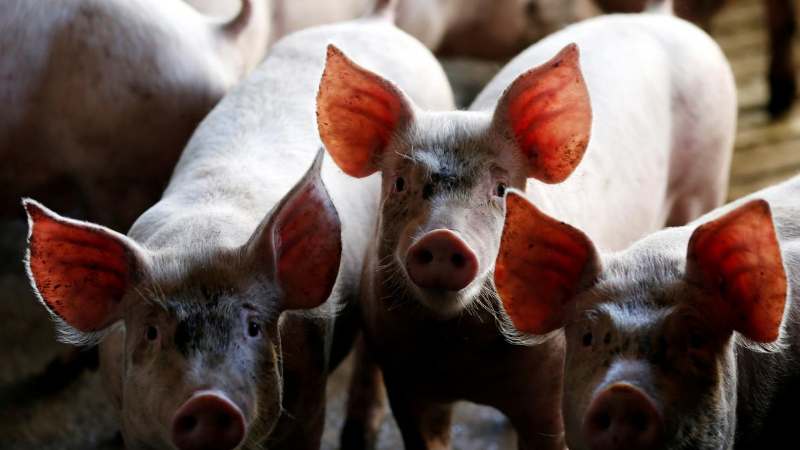
Business
15:10, 28-Oct-2018
Hog industry worldwide getting slaughtered amid trade tensions
Updated
14:39, 31-Oct-2018
CGTN

The ongoing US-China trade tensions are landing particularly hard on the pork industries – and spraying shrapnel that has damaged other major pork exporters such as Brazil, Canada and top European producers.
In contrast to many industries that trade war has divided into winners and losers, the world's pork farmers and processors are almost universally shedding profits and jobs from a crippling combination of rising feed costs and sinking pig prices.
The key reason: The trade war came at precisely the wrong time, after a worldwide expansion to record pork production levels on the expectation of rising meat demand and low feed prices from a global grains glut.
In the United States, meat companies such as Seaboard Triumph Foods and Prestage Farms have spent hundreds of millions of dollars boosting US slaughter capacity by more than 10 percent from three years ago to nearly half a million hogs daily.
Just before trade barriers went up, the US Department of Agriculture (USDA) predicted in an April analysis that global supply growth would outpace demand this year, sparking "fierce competition and lower prices."
Tariff battles accelerated those trends by shutting off export markets, raising feed prices and upending regional supply-and-demand dynamics that underpinned industry profits.
US pork faces retaliatory duties of 62 percent in China and up to 20 percent in Mexico, slashing demand from two top US pork export markets and contributing to a mountain of unsold meat in cold storage.
The USDA said in a statement that soymeal costs have declined because of a surplus of domestic soybeans that China is no longer buying. The Trump administration is working to increase opportunities for US agriculture with the European Union, Japan and the United Kingdom, the agency said.
In China, tariffs on US soybeans and an outbreak of African swine flu have driven farmers to send hogs for an early slaughter, exacerbating a glut that followed the rapid expansion of more efficient, large-scale farms in recent years.
Brazil's pork industry has suffered higher feed prices partly because farmers now must compete with major Chinese soybean buyers who turned to Brazil to avoid tariffs on US beans.
In Canada, the world's third-largest exporter, producers' fortunes have fallen along with the US because their prices are tied to that much larger market. In August, prices fell 31 percent less than the month before, according to data compiled by Hams Marketing Services.
Source(s): Reuters

SITEMAP
Copyright © 2018 CGTN. Beijing ICP prepared NO.16065310-3
Copyright © 2018 CGTN. Beijing ICP prepared NO.16065310-3